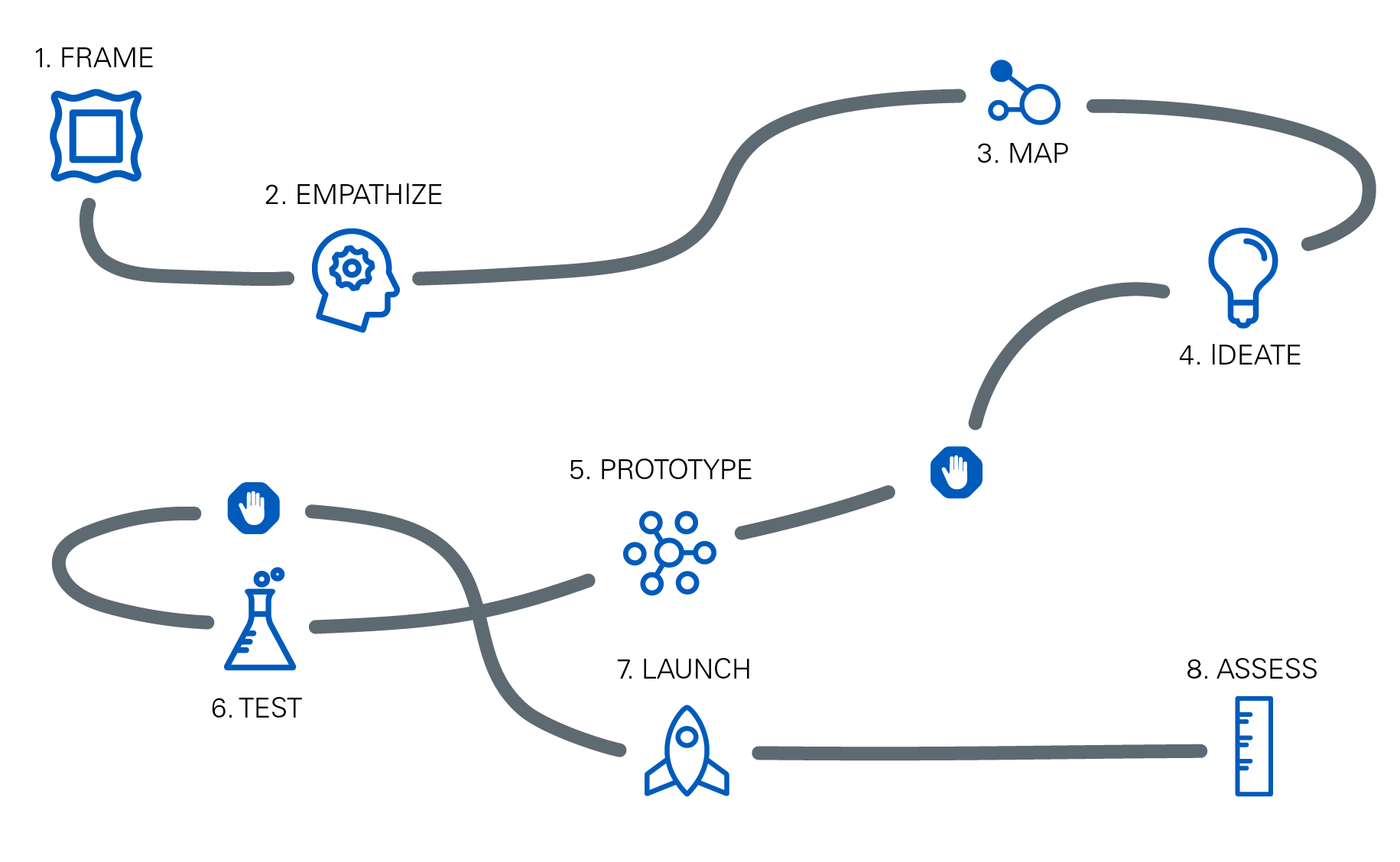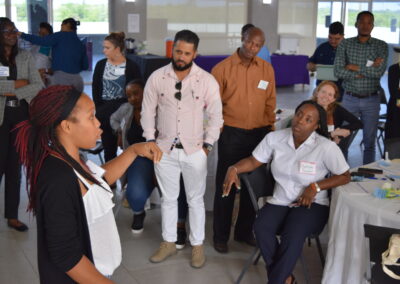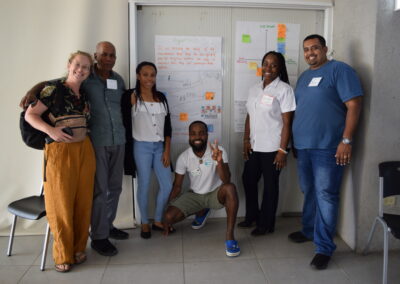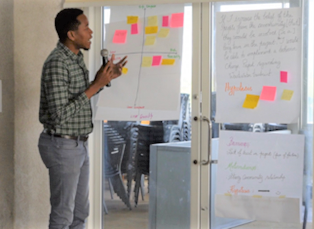Behavior Centered Design for Wastewater Pollution in the Caribbean Workshop — Jamaica, 2023
From July 11-14, 27 managers from nine Caribbean countries came together in Kingston, Jamaica to participate in the Behavior Centered Design for Wastewater Pollution in the Caribbean Workshop. During the first two and a half days, participants explored the principles of behavior change and an approach called Behavior-Centered Design through a regional case study. The following day was dedicated to helping participants apply what they learned to their own behavior change challenges for addressing wastewater management and pollution. After the training, participants are eligible to apply for mini grants to design and implement their behavior change solutions to address wastewater pollution issues and improve effective management of marine areas.
The workshop was hosted by the United Nations Environment Programme (UNEP) Cartagena Convention Secretariat and the Reef Resilience Network and implemented by Rare—the leading behavior change organization in conservation with experience working with communities on behavior change campaigns in many countries worldwide. Funding was provided by RRN, Oceankind, and the GEF CReW+ project (CReW+ is a partnership project funded by the Global Environment Facility (GEF) that is being co-implemented by the Inter-American Development Bank (IDB) and UNEP in 18 countries of the Wider Caribbean Region). GEF CReW+ is being executed by the Deutsche Gesellschaft für Internationale Zusammenarbeit GmbH, the Organisation of the American States, and the Secretariat of the Cartagena Convention on behalf of the IDB and UNEP. Additional partners included the German Agency for International Cooperation, Organization of American States, and Caribbean Maritime University.

Explore resources shared during the workshop:

Identify the actors and behaviors for your environmental challenge.
Collect data on actors’ motivations and barriers for the target behavior.
Develop links between your data and behavioral insights by writing a hypothesis.
Brainstorm behavioral solution ideas.
Create a solution draft and share with your key actors to get feedback.
Implement your solution and evaluate the results.
*Please note that some of the links above require making a free account on behavior.rare.org.




